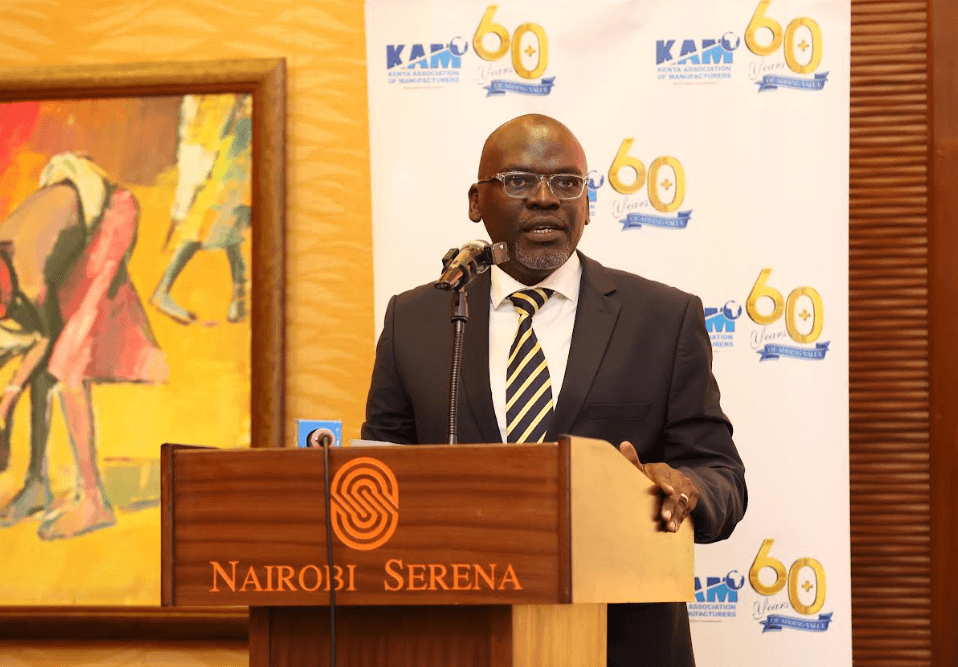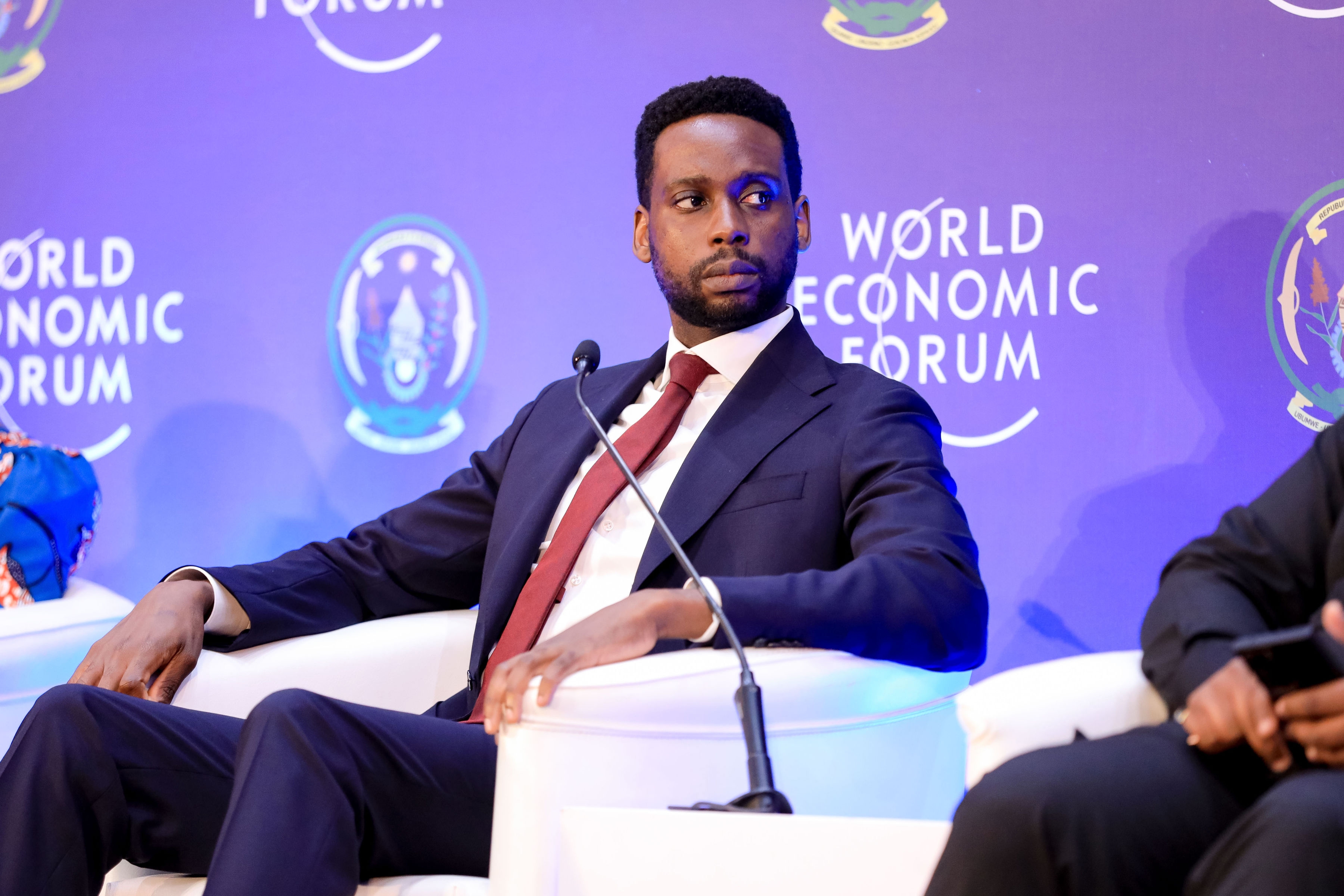
His breath formed small clouds in the air, the crowd’s
chatter misted into the pale light and the smell of coffee and diesel hung
along the start line.
For Tarus, born and raised in the rolling hills of Kapsabet, Nandi county,
where mornings are warm and training roads dusty, running 21km in sub-zero cold
was nothing short of surreal.
Yet here he was, a Kenyan flag stitched to his vest,
ready to race on a course thousands of kilometres from home.
The Gatchina Half Marathon, held on November 9, traditionally
closes Russia’s road-running season.
The course is flat, fast and internationally certified,
attracting elite runners from across Eastern Europe.
But this year’s race drew extra attention when organisers
announced two Kenyan guests: Julius Tarus and Jane Chelagat.
Tarus, 34, is best known at home for his steady
progression from track to road.
He owns a 5,000-metre best of 14:05, a half-marathon mark of
1:04:35 set in Spain in 2024, and a marathon best of 2:07:35
achieved in the Netherlands six years earlier.
Chelagat, 36, has career marks of 1:13:02
for the half and 2:41:30 for the marathon.
Both runners had already competed in Russia that year. Tarus had finished third at the Siberian International Marathon in Omsk, earning respect from the local athletics scene and an invitation to Gatchina.
LONG
JOURNEY
Race officials began negotiating his visit two months
before the half marathon.
Tarus recalls the moment he first received an invitation
letter to the Omsk Marathon.
“I said wow,
that's great! Because I need to travel. Running allows me to travel around the
world. I had already been to some parts of Europe, and when the chance to go to
Russia came up, I said, ‘Amen, this is part of the journey,’” he said.
His visa arrived just a week before departure, a relief for
the small Russian organising committee that had spent weeks navigating
bureaucracy.
The trip itself was punishing: nearly 19 hours
in transit, with two flight connections.
When he finally arrived in St Petersburg, the city was
grey and damp. Tarus, who had only ever trained in Kenya’s mild highland
climate, stepped out of the airport and felt the chill cut through his
tracksuit.
“My boss told me, ‘Please prepare yourself, it is cold
here,’” he laughed. “But how could I? In Kenya, it’s warm. So I said, ‘Let it
be as it is. I’ll come and adapt in three days.’”
He did. For three days, he jogged through city parks,
testing the air, feeling the sting on his face. On race morning, he wore
gloves, a hat and a vest over a long-sleeved shirt, an outfit that was
“completely new to me”.
“I spent three
days here and got used to it a little. We ran in the park, so today, I was able
to run well,” he said.
“After all,
I've been here for three days. That's enough. Even two days is enough to adapt
to the environment of another country. While you're walking, going to the
hotel, you feel the wind and the cold, and you quickly get used to it.”
The athlete
wanted to meet the people and learn of the atmosphere, which did not
disappoint.
“When I arrived
in Russia, the first thing I noticed was that people were friendly and
hospitable; they clearly like foreigners,” he said.
“I like these guys. I like Russia. So when people say, ‘Come back again and again,’ I gladly agree. Because I like them. These people are very nice.”
RUNNING TO GLORY
The start gun fired at 10am. A pack of elite Russians
surged forward: Viktor Gurzhiy from Vladivostok, Yegor Limonov
of St Petersburg and Andrey Yanovich from Moscow. Hot on their heels was Tarus
in his bright Kenyan colours.
For 16km, he clung to the leaders, hoping to dip under one hour three minutes.
Then Limonov injected pace. Tarus hung on for a few more strides before falling
behind, the icy air biting his throat.
He crossed the finish line fourth in 1:03:12,
a personal best in harsh conditions. Gurzhiy won with a course record of 1:02:32;
Limonov and Yanovich completed an all-Russian podium.
Tarus took it
in his stride. “Today you can win, and another time you might not finish, or
come in second or third. But that's the test we go through. Whatever the
result, we have to accept it,” he said.
“I'm
happy because I set a personal record in Gatchina. I ran a half marathon in
1:03, despite the weather.”
He considered
it an achievement to clock 1:03:12 in such cold weather.
“Of course, I'm
disappointed not to have made it onto the podium. First, second and third place
are very, very important, but fourth place is also very good. And to achieve
this result in cold conditions is also great,” he said.
Inside Gatchina’s modest chess-club headquarters, doubling
as race office and commentary booth, the medal ceremony felt intimate.
Volunteers handed runners tea with milk, sandwiches and
small envelopes of prize money. Tarus smiled.
“I tried tea with milk. Black tea, which we
usually drink in Kenya, I found it here, it's wonderful. And rice, potatoes and
chicken are very familiar foods that I also like,” he said.
“The food here
is good, comfortable, no different from Kenya. And I like that.’
Tarus carries himself with quiet faith and the philosophy
shared by many Kenyan runners.
To him, running is like war, and when you go to fight, you
aim to win. Still, you have to accept the outcome.
“Our legend
Eliud Kipchoge says, ‘No human is limited.’ This means: focus,” he said.
“When you start a journey, be sure to finish it. We train
in the morning, get up very early to be ready when the chance to race comes.”
He trains in a camp of about 60 athletes in Kapsabet,
Nandi county, the cradle of Kenyan distance running.
Every morning before sunrise, 3am or 4:30am, he wakes up if
a long run is planned.
“After training, it is recovery time: sleep, food, time
with my family,” he said. “Running is my job.”
He has a wife and two children, plus parents and siblings
who depend on him. Running, he says, is not merely a sport, it is a livelihood.
“When you start running, the first thing that changes in
your life is that you start earning money,” he said. “You can buy land, feed
your family, pay school fees. Running is how we survive.”
Despite his achievements, Tarus has no sponsor.
He relies on race bonuses and friends’ generosity for gear.
“I rely on my
friends for now,” he said.
His fourth-place in Gatchina earned no official prize,
but he received a 20,000-ruble time bonus (about Sh36,000) plus a similar
appearance fee.
“The money will buy training shoes and food for my family
and training partners because we train as a group,” he said, pointing to his
worn sneakers. “Maybe some sugar, too.”
He explained the precarious economy of professional
running in Kenya: Hundreds of talented athletes chasing few races, with only
the top 10 finishers earning prize money.
“There are so many of us but few opportunities,” he said.
“That’s why when a chance like going to Russia comes, you must take it.”
Without a permanent manager, he depends on race directors
like Vladimir
Bolotin, a Russian athletics promoter who helped bring him to
Gatchina.
“He has a kind heart,” Tarus said. “Without him, I wouldn’t be here.”
CHELAGAT’S STORY
For Jane Chelagat, the experience was both thrilling and
punishing. She had accepted Tarus’s suggestion to join the trip.
“It’s Jane’s first time here,” he said proudly. “She
already says it’s a good place.”
But the cold proved too much. Midway through the race,
she felt her muscles stiffen. “I was cold,” she admitted, shivering even hours
later. Still, she vowed to return better prepared.
The organisers, meanwhile, considered the Kenyan
participation a success. “Having Julius and Jane brought global spirit to our
event,” said one volunteer. “They showed great professionalism and humility.”
Tarus races three to four marathons a year,
spacing them three months apart. Without seasons or winter in Kenya, he can
train year-round.
“In Kenya, there are races almost every month,” he said.
“But competition is fierce, imagine 500 athletes in one marathon and only 10
get paid.”
Winning big events can be life-changing. The Standard Chartered Nairobi
Marathon, for example, offers Sh2 million for
first place.
“If you win, you can build a house or buy land,” he said.
“That’s why everyone trains so hard.”
Yet for most, the dream remains elusive. Many live in
shared housing near training camps, relying on small race earnings to get by.
After Gatchina, Tarus’s itinerary was tight: fly from St
Petersburg to Moscow, then to Doha, then Nairobi. Within days of landing, he
would resume training for a December or January marathon.
“There will be no time to rest,” he said. “Running is my
work. If I rest too long, I lose shape.”
He has no confirmed next race but remains optimistic.
“You must always be ready,” he said. “If the chance arises, I’ll go.”
Looking back on his Russian experience, Tarus said it
tested more than his speed.
“It taught me patience and adaptability,” he said. “In
Kenya we train in the sun, but here I learned to run in cold wind. Every new
challenge makes you stronger.”
He believes young Kenyan athletes should seek out such
opportunities.
“If you get invited to a race in Russia, definitely go,” he said. “Don’t think badly of Russia—think positively. It’s a wonderful place.”
A
BRIDGE THROUGH SPORTS
Tarus’s journey is a reminder of how sport can bridge
distant worlds. In a time when geopolitics often divides nations, a runner from
a small village in Kenya found friendship among Russians cheering by snowy
roadsides.
“A country is made of people,” he said. “Without people,
there is no country. The people here are kind and love foreigners. That’s what
matters.”
For organisers in Gatchina, hosting him was more than an
athletic spectacle, it was an act of solidarity between ordinary citizens of
two continents connected by the shared rhythm of running feet.
Tarus turned 35 on November 11, two days after
the race. “11/11 Birthday in Russia,” he joked, “but without cake, it’s too
cold for cake.”
He hopes to find a manager before 2026 to secure more
invitations and sponsorship. Until then, he will keep training, praying and
racing wherever doors open.
As he packed his worn running shoes into his travel bag
after the race, he paused and looked out through the frosted window.
“I will come back,” he said softly. “Russia is far, but
the people made it feel close. I will tell my friends at home that this is a
good place.”
For Julius Tarus, running is not simply a sport, it is
faith, work and hope rolled into one.
From his first barefoot strides on Kenyan soil to the icy
pavements of Russia, it has carried him across continents and cultures.
In a world divided by borders and politics, his story is
that of an athlete whose determination defies geography and whose humility
reminds us that every stride, no matter how cold or hard, brings the world a
little closer together.
“Many thanks to the Russians,” he said as he waved
goodbye at the airport. “God bless you all.”


















